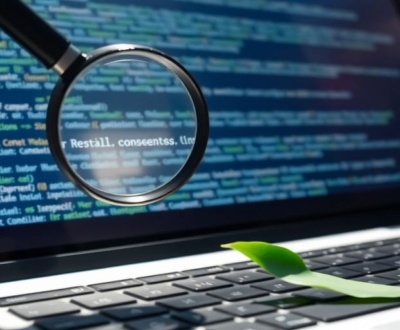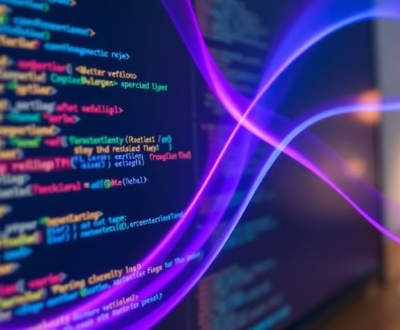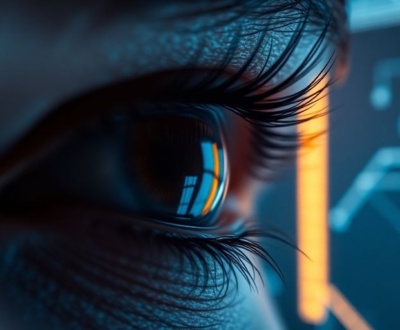As artificial intelligence (AI) becomes more integrated into our daily lives, the conversation around the ethics of artificial intelligence is more important than ever. This topic covers a wide range of issues, from how AI systems are developed to how they impact society. In this article, we will explore the ethical principles guiding AI development, the challenges faced in implementing these ethics, and the future directions we can take to ensure AI serves humanity positively.
Key Takeaways
- AI ethics are essential for guiding the responsible use of technology.
- Transparency and accountability are crucial in AI development.
- Bias in AI can lead to unfair outcomes, making fairness a key principle.
- Privacy concerns must be addressed to protect user data.
- Global collaboration is needed to establish ethical standards in AI.
Understanding The Ethics of Artificial Intelligence
Defining AI Ethics
Okay, so what are we even talking about when we say "AI Ethics"? It’s not just about robots becoming self-aware and deciding to take over the world (though, Hollywood does love that). Really, it’s about making sure AI is developed and used in a way that’s responsible and fair. Think of it as a set of guidelines that help us navigate the tricky questions that come up when machines start making decisions. It’s about building AI that aligns with our values and doesn’t cause harm.
Importance of Ethical Guidelines
Why bother with ethical guidelines for AI? Well, AI systems are increasingly used in areas that seriously affect people’s lives. From healthcare to criminal justice, AI is making decisions that have real consequences. If these systems are built on biased data or flawed algorithms, they can perpetuate and even amplify existing inequalities. It’s easier to incorporate a code of ethics during the development process to mitigate any future risks. Plus, ethical guidelines help build trust in AI, which is important for its widespread adoption.
Here’s a quick look at why ethical AI is important:
- Prevents bias and discrimination
- Ensures transparency and accountability
- Protects privacy and data security
- Promotes public trust
Ignoring AI ethics can lead to serious problems, including unfair outcomes, reputational damage, and even legal liabilities. It’s not just about doing the right thing; it’s also about protecting your organization and the people it serves.
Stakeholders in AI Ethics
Who’s responsible for making sure AI is ethical? Turns out, it’s a lot of people! It includes AI developers, of course, but also policymakers, business leaders, and even the general public. Everyone has a role to play in shaping the future of AI and ensuring that it benefits society as a whole. It’s a team effort, and we all need to be on the same page. The discussion around AI ethics has progressed from being centered around academic research and non-profit organizations. Today, big tech companies have assembled teams to tackle ethical issues that arise from collecting massive amounts of data.
Key Ethical Principles in AI Development
It’s easy to get caught up in the excitement of new tech, but we can’t forget about the ethics. When it comes to AI, having a strong ethical foundation is super important. It’s about making sure AI is developed and used in a way that’s fair, responsible, and benefits everyone. Let’s look at some key principles.
Transparency and Accountability
Transparency in AI means being open about how AI systems work. It’s about understanding the data used to train them and the decisions they make. If an AI denies someone a loan, they should know why. This builds trust and allows for ethical considerations to be addressed. Accountability goes hand-in-hand with transparency. If something goes wrong, there needs to be a way to figure out who is responsible and how to fix it. It’s not enough to say, "The AI did it." We need clear lines of responsibility.
Fairness and Non-Discrimination
AI systems can accidentally perpetuate or even amplify existing biases if we aren’t careful. Fairness means making sure AI systems don’t discriminate against certain groups of people. This requires careful attention to the data used to train AI models and ongoing monitoring to detect and correct bias. It’s not always easy to define what fairness means in practice, and there can be different interpretations. But the goal is to create AI systems that treat everyone equitably.
Privacy and Data Protection
AI systems often rely on large amounts of data, including personal information. Protecting people’s privacy is a key ethical consideration. This means being transparent about how data is collected, used, and stored. It also means giving people control over their own data and the ability to opt out of data collection. Data breaches and misuse of personal information can have serious consequences, so robust data protection measures are essential. It’s about finding a balance between the benefits of AI and the need to protect individual privacy.
Ethical AI development isn’t just a nice-to-have; it’s a must-have. It’s about building AI systems that are aligned with human values and that contribute to a more just and equitable world. It requires ongoing dialogue, collaboration, and a commitment to ethical principles throughout the AI lifecycle.
Challenges in Implementing AI Ethics

Bias in AI Systems
AI systems are only as good as the data they’re trained on, and that’s a problem. If the data reflects existing societal biases, the AI will amplify those biases. This can lead to unfair or discriminatory outcomes, even if the AI is designed with good intentions. For example, facial recognition software has been shown to be less accurate for people with darker skin tones. It’s a real challenge to create truly fair AI when the world itself isn’t fair.
Lack of Regulatory Frameworks
Right now, there aren’t many clear rules about how AI should be developed and used. This lack of regulation makes it hard to hold companies accountable for unethical AI practices. It’s like the Wild West out there. We need governments to step up and create frameworks that protect people from the potential harms of AI, but it’s a slow process.
Complexity of Ethical Decision-Making
Ethical dilemmas in AI are rarely straightforward. There are often competing values and no easy answers. For example, how do you balance the benefits of AI-powered healthcare with the need to protect patient privacy? These are tough questions, and they require careful consideration from experts in different fields. It’s not just a technical problem; it’s a human one.
Figuring out the ethics of AI is not easy. It’s a complex area with lots of different angles to consider. We need to think about fairness, privacy, and accountability, and we need to make sure that AI is used in a way that benefits everyone, not just a few.
The Role of AI in Society
Impact on Employment
AI is changing the job market, no doubt about it. Some jobs are disappearing, while others are being created. It’s a bit of a mixed bag, really. The big question is whether the new jobs will outweigh the old ones, and if people will have the skills to do them.
- Automation of routine tasks
- Creation of new roles in AI development and maintenance
- Need for workforce retraining and upskilling
AI in Healthcare
AI is making waves in healthcare, and it’s kind of amazing. From diagnosing diseases to personalizing treatment plans, the possibilities seem endless. But, there are also concerns about data privacy and the potential for bias in algorithms. It’s a brave new world, but we need to tread carefully.
AI has the potential to revolutionize healthcare, but it’s important to address the ethical considerations to ensure that it benefits everyone.
AI and Social Justice
AI’s impact on social justice is a complex issue. On one hand, it could help reduce bias in decision-making. On the other hand, if AI systems are trained on biased data, they could perpetuate and even amplify existing inequalities. It’s a double-edged sword. We need to be really careful about how we design and deploy these systems.
Here’s a quick look at some potential impacts:
| Area | Potential Benefit | Potential Risk |
|---|---|---|
| Criminal Justice | More objective risk assessments | Biased predictions based on historical data |
| Education | Personalized learning experiences | Unequal access to AI-powered educational tools |
| Hiring | Reduced human bias in resume screening | Algorithmic discrimination against certain groups |
Ethical Considerations in AI Applications
Autonomous Weapons
Autonomous weapons, sometimes called killer robots, present a unique set of ethical problems. The big question is: can we really hand over the decision to take a human life to a machine? There’s a lot of debate about accountability. If an autonomous weapon makes a mistake and harms civilians, who is responsible? The programmer? The military commander? Or is it just an unavoidable accident? These systems also raise concerns about the potential for accidental escalation of conflicts.
- Risk of unintended harm to civilians.
- Lack of human judgment in critical decisions.
- Potential for arms races and global instability.
It’s not just about the technology itself, but also about the policies and regulations that govern its use. We need to think carefully about the long-term consequences of these systems and make sure they align with our values.
Surveillance Technologies
AI-powered surveillance is becoming more common, from facial recognition in public spaces to algorithms that analyze our online behavior. The issue here is the balance between security and privacy. How much surveillance is too much? And how do we prevent these technologies from being used to discriminate against certain groups or suppress dissent? It’s a slippery slope, and we need to have safeguards in place to protect our personal data.
- Potential for mass surveillance and erosion of privacy.
- Risk of bias and discrimination in surveillance systems.
- Lack of transparency and accountability in how surveillance data is used.
AI in Criminal Justice
AI is increasingly used in criminal justice, from predicting recidivism to identifying potential suspects. While these tools can be helpful, they also raise serious ethical concerns. One of the biggest is bias. If the data used to train these algorithms reflects existing biases in the criminal justice system, the AI will simply perpetuate those biases. This can lead to unfair or discriminatory outcomes, especially for marginalized communities. We need to make sure these systems are fair, transparent, and accountable.
Here’s a quick look at how AI is being used:
| Application | Description |
|---|---|
| Risk Assessment | Algorithms predict the likelihood of a defendant re-offending. |
| Predictive Policing | AI analyzes crime data to identify areas where crime is likely to occur. |
| Facial Recognition | Used to identify suspects from video footage or images. |
Future Directions for AI Ethics

Global Standards and Regulations
Okay, so where do we go from here? Well, one big thing is getting everyone on the same page. Right now, it’s kind of a Wild West situation with AI ethics. Different companies, different countries – everyone’s doing their own thing. What we really need are some global standards and regulations. Think of it like traffic laws; without them, it’s just chaos on the roads. We need something similar for AI to make sure everyone’s playing by the same rules. This could involve international agreements, industry-wide guidelines, or even new government bodies dedicated to overseeing AI development. It’s a huge task, but it’s essential for responsible innovation. The FUTURE-AI framework could be a good starting point.
Public Awareness and Education
Another crucial piece of the puzzle is getting the public involved. Most people don’t really understand how AI works or what the ethical implications are. They might see the cool stuff – like AI-powered art or self-driving cars – but they don’t necessarily think about the potential downsides, like bias or job displacement. Education is key here. We need to start teaching people about AI ethics in schools, through public campaigns, and even in the media. The more people understand about AI, the better equipped they’ll be to make informed decisions about its use and to hold developers accountable. It’s not just about understanding the tech; it’s about understanding the impact it has on our lives and society.
Interdisciplinary Approaches to AI Ethics
Finally, we need to stop thinking about AI ethics as just a tech problem. It’s not. It’s a problem that touches on philosophy, law, sociology, and a whole bunch of other fields. That means we need to bring in experts from all sorts of backgrounds to help us figure things out.
We need philosophers to help us define what "fairness" really means in an AI context. We need lawyers to help us develop regulations that are both effective and enforceable. And we need sociologists to help us understand how AI is impacting different communities. It’s a complex problem, and it requires a complex solution.
Here are some areas where interdisciplinary collaboration is particularly important:
- Bias Detection and Mitigation: Combining computer science with social sciences to identify and correct biases in AI algorithms.
- Ethical Framework Development: Working with philosophers and ethicists to create frameworks that guide the development and deployment of AI systems.
- Policy and Regulation: Collaborating with legal experts and policymakers to develop effective and ethical regulations for AI.
Wrapping It Up: The Path Forward
So, here we are at the end of our journey through the ethics of AI. It’s clear that as we keep pushing the boundaries of technology, we need to keep our moral compass in check. The potential for AI to do good is huge, but without proper guidelines, we could easily end up in a mess. Companies and developers must take responsibility and think about the impact their creations have on society. It’s not just about making cool gadgets or systems; it’s about making sure they’re fair and safe for everyone. As we move forward, let’s hope we can strike a balance between innovation and ethics, ensuring that AI serves humanity, not the other way around.
Frequently Asked Questions
What is AI ethics?
AI ethics refers to the set of rules and guidelines that help people and organizations make sure that artificial intelligence is developed and used responsibly and fairly.
Why are ethical guidelines important for AI?
Ethical guidelines are essential because they help prevent harm caused by AI systems, especially when these systems can affect people’s lives. They ensure that AI is built and used in ways that are fair and just.
Who is involved in AI ethics?
Many different people are involved in AI ethics, including engineers, researchers, business leaders, and government officials. They all play a role in making sure AI is developed ethically.
What are some key principles of AI ethics?
Some important principles include being transparent about how AI works, making sure AI is fair and does not discriminate, and protecting people’s privacy.
What challenges do we face in implementing AI ethics?
One major challenge is that AI systems can be biased if they are trained on unfair data. Additionally, there are not enough laws and regulations to guide the ethical use of AI.
How can AI impact society?
AI can have a big impact on society by changing how people work, improving healthcare, and even affecting social justice issues. It’s important to consider these impacts carefully.
About this blog
We are a digital marketing company with a focus on helping our customers achieve great results across several key areas.
Request a free quote
We offer professional SEO services that help websites increase their organic search score drastically in order to compete for the highest rankings even when it comes to highly competitive keywords.









